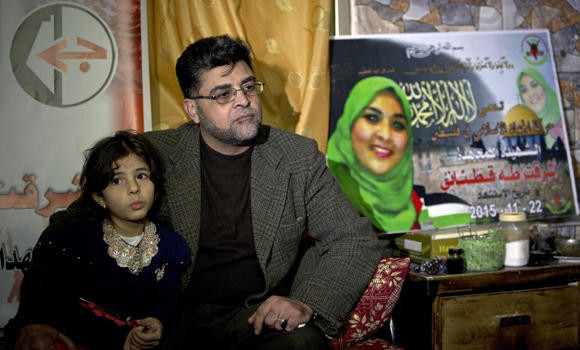NABLUS, West Bank: When Palestinian youths began a wave of grassroots and often suicidal stabbing attacks against Israeli soldiers and civilians several months ago, it wasn’t his three sons that Ramiz Hassoneh was worried about — it was his daughter.
Ignoring her father’s warnings, 20-year-old Maram took a kitchen knife to an Israeli military checkpoint on Dec. 1 and was shot dead as she tried to attack the soldiers, according to the Israeli military. The deadly mission put her among some 20 young females who have been involved in attacks on Israelis in recent months — a new trend that has confounded both Palestinian families and Israeli security officials.
While battling Israel was once a role restricted to Palestinian men and boys, the current wave of violence has seen an unprecedented spike in female involvement. And where the few women who did engage in attacks in the past were typically underprivileged females seeking redemption after being rejected by their families, the attackers are now largely ideological, educated women from supportive homes.
Brewing desperation
Palestinians consider the trend to be a combination of rising Islamist zeal, the growing role of women in the conservative society and the brewing desperation of a younger generation with few prospects.
In Maram’s case, her family said she had a burning drive to resist the Israeli occupation somehow. A top English student at An-Najah University and a devout Muslim, Maram was deeply troubled by TV images showing the death of young Palestinians killed in attacks and clashes with Israel.
She had memorized the entire Qur’an and cited religious and nationalistic motives for her desire to strike at Israelis. Unlike her younger brothers, who busied themselves with daily life, her father said Maram was an independent thinker who couldn’t be swayed from her convictions, even after serving six months in prison for another unsuccessful stabbing attempt on a soldier two years earlier.
“Girls are more sensitive to the occupation. They are more emotional about these things,” said Hassoneh, sitting in his Nablus home under a large poster of his late daughter wearing a headscarf. “She believed that she would inspire the boys to do something ... She looked at me and said: ‘When our men who sit in coffee shop see (a girl) killed, they will move.’“
His wife, Hanan, sitting next to him with a gold necklace featuring Maram’s image, said her sorrow was mixed with pride. “I’m happy she is a martyr, but I miss her a lot,” she said.
Doomed to fail, but...
Since the violence erupted in mid-September, 21 Israelis and an American Jew have been killed, mostly in stabbing attacks carried out by young Palestinians in their late teens or 20s. Many attackers were doomed to failure from the start, armed with only crude weapons such as knives, scissors and potato peelers.
At least 132 Palestinians have been killed, of whom 11 were women. Israel has identified 91 of the Palestinians killed as attackers; the rest died in clashes with Israeli troops.
Israel says the violence is the result of incitement by Palestinian leaders and on social media sites. The Palestinians say it stems from frustration over nearly 50 years of occupation, failed peace talks and continued Israeli settlement construction.
In previous rounds of violence, women were expected to stay home while the boys fought. But women’s increased presence online, where most of the rallying cries to violence take place, and general advancement in society have emboldened many to partake in the “national struggle,” said Jihad Harb, a Palestinian researcher and commentator.
“Social media has opened a new horizon for the new generation. They interact and build their thoughts in a new way that gives girls the same chances of boys,” he said.
The Israeli military says that of 152 attacks recorded, 22 were by women. It attributed the rise to a new, bolder generation of Palestinian women that did not belong to the established military organizations and did not ask for anyone’s permission to act.
One of the most notable incidents involved a pair of cousins, aged 16 and 14, who stabbed an elderly Palestinian, mistaking him for an Israeli, with a pair of scissors near a popular Jerusalem marketplace. Security camera footage captured a police officer shooting one of them dead and wounding the other.
Ibrahim Awwad, the father of 16-year-old Norhan, who was wounded, said he was shocked by their botched attack and could only speculate that they were driven by the daily life in the Qalandia refugee camp north of Jerusalem, where they often woke to the sounds of shootings.
“If I knew they were going to carry out an attack, I would have tied them up in the house,” he said. “But everything was normal. There were no signs.”
Harsh measures begetting violence
Police spokesman Micky Rosenfeld said that because females didn’t fit the typical profile of an attacker, they aroused little suspicion and had an easier time getting around Israeli checkpoints. That has now changed.
Hanan Ashrawi, the most senior female Palestinian official, said the surge in attacks reflects an overall more active political approach of the younger generation. She said that Israeli measures had provoked all Palestinians and that women feel “they are just as affected by this reality.”
Deeper religious devotion was also a factor, she added.
Taha Qatanani said his 16-year-old daughter Ashraqat’s greatest wish was to pray at the Al-Aqsa Mosque in Jerusalem, and when he was unable to get her the necessary permits, she accused him of letting her down. Tensions at the site, the third-holiest in Islam, and rumors that Israel was trying to expand its presence there enraged her, Qatanani said.
On Nov. 22, she pulled out a knife at the entrance to a West Bank military base when a settler driving by veered off the road and struck her with his car. A soldier then shot her dead.
“As long as there is occupation there will be resistance,” said Qatanani, who served several stints in Israeli prisons for his activity in the Islamic Jihad movement.
In the family living room on the outskirts of Nablus, there was a makeshift shrine to Ashraqat featuring her image against a backdrop of Al-Aqsa and a wooden carving in her honor with a bloodied knife piercing through a map of historic Palestine.
“I would have much more relief if my son had done it,” Qatanani said over tea, pointing to 18-year-old Yassin. “My masculine mentality says the man should do it. But I consider the girl doing it a much stronger message ... when it gets to the degree that a girl carries out an attack it means there is nothing else.”
Palestinian wave of violence marked by increased female role
Palestinian wave of violence marked by increased female role

Jordan and Qatar condemn burning of Gaza hospital by Israeli forces

- Actions of troops are a ‘heinous war crime’ and ‘blatant violation of international law and humanitarian law,’ Jordanian Foreign Ministry says
- Qatar calls it a ‘dangerous escalation’ with potentially ‘dire consequences for the security and stability of the region’
LONDON: Jordan has described the actions of Israeli forces in clearing and burning one of the last hospitals that was still operating in northern Gaza as a “heinous war crime.”
Troops stormed the Kamal Adwan Hospital in Beit Lahia on Friday, forcing staff and patients from the building and setting fire to it.
Sufian Al-Qudah, a spokesperson for Jordan’s Ministry of Foreign Affairs, said the attack was a “blatant violation of international law and humanitarian law. Israel is also held accountable for the safety of the hospital’s patients and medical staff.”
Jordan categorically rejects the “systematic targeting of medical personnel and facilities,” he added, and this was an attempt to destroy facilities “essential to the survival of the people in the northern Gaza Strip.”
Al-Qudah urged the international community to put pressure on Israel to halt its attacks on civilians in Gaza.
Qatar also denounced “in the strongest terms” the attack on the hospital as a flagrant violation of international humanitarian law.
The country’s Foreign Ministry said it represented a “dangerous escalation of the ongoing confrontations, which threatens dire consequences for the security and stability of the region,” and called for the protection of the “hundreds of patients, wounded individuals and medical staff” from the hospital.
UN worker seriously hurt in Israeli Yemen strike moved to Jordan, WHO says

- WHO chief Tedros was at Sanaa airport with his team when Israel attacked
ZURICH: The UN worker hurt in an Israeli air strike on Yemen’s main international airport on Thursday suffered serious injuries and has been evacuated to Jordan for further treatment, the World Health Organization said on Friday.
Israel said it had struck multiple targets linked to the Iran-aligned Houthi movement in Yemen, including Sanaa International Airport, and Houthi media said at least six people had been killed.
“Attacks on civilians and humanitarians must stop, everywhere. #NotATarget,” WHO Director-General Tedros Adhanom Ghebreyesus said in a post on X that showed him sitting in a plane looking across at what appeared to be the injured man.
Tedros was at the airport waiting to depart when the aerial bombardment took place that injured the man, who worked for the UN Humanitarian Air Service. A spokesperson for the WHO said the man had been seriously injured.
Tedros said he and the UN worker were now in Jordan.
The man underwent a successful surgical procedure prior to his evacuation for further treatment, Tedros said.
He had been in Yemen to negotiate the release of detained UN staff and to assess the humanitarian situation.
Jordan’s King Abdullah reaffirms support for Syria’s sovereignty, calls for Gaza ceasefire

- King in phone conversation with French president
AMMAN: King Abdullah II reaffirmed on Friday Jordan’s commitment to supporting Syria in building a free, independent, and fully sovereign state that reflected the aspirations of all its people.
In a phone conversation with French President Emmanuel Macron, the king emphasized the importance of Syria’s security, and stability for the Middle East region as a whole. He also reiterated Jordan’s firm stance against any violations of Syria’s territorial integrity and sovereignty, Jordan News Agency reported.
Syria faced nearly 14 years of devastating civil war before the fall of President Bashar Assad’s regime earlier this month following a swift takeover by militants led by Hayat Tahrir Al-Sham.
The country remains fragmented, grappling with the challenges of rebuilding amid competing political and military influences.
The discussion between King Abdullah and Macron also addressed the ongoing Israeli war on Gaza.
The conflict, which erupted in the aftermath of a Hamas attack on Israeli territory on Oct. 7 last year, has led to a humanitarian crisis in the Palestinian enclave, with tens of thousands of lives lost and infrastructure heavily damaged.
King Abdullah called for an immediate cessation of hostilities and a strengthened humanitarian response to alleviate the suffering of Palestinians trapped there.
He also stressed the urgent need for progress toward a just and comprehensive peace in the region, underscoring the two-state solution as the basis for resolving the Israeli-Palestinian conflict.
King Abdullah highlighted the importance of sustained efforts to ensure the success of the ceasefire in Lebanon.
Syrian equestrian champ reveals 21 years of torture at hands of Assad regime

- Adnan Kassar was friends with Bassel Assad until overshadowing him at a championship event in 1993
- Kassar was detained, and his treatment worsened after Bassel’s death a year later
LONDON: A former champion equestrian has revealed the torture he suffered when he was detained by the Syrian regime after besting the older brother of former ruler Bashar Assad.
Adnan Kassar told Sky News he endured 21 years of imprisonment, during which he was physically and mentally abused, after Bassel Assad, his teammate at the 1993 International Equestrian Championship, became irritated at his performances.
The two had been good friends, but Kassar’s showing won his team the gold medal at the event on home soil in the port city of Latakia, after Bassel had produced a poor display.
“The crowd lifted me on their shoulders. It was a moment of pure joy, but for Bassel, it wasn’t the same. That day marked the beginning of my nightmare,” Kassar told Sky.
He was later arrested over what he called “fabricated” accusations and subjected to severe physical and psychological abuse.
“I was kept underground for six months, beaten constantly, and interrogated without end,” he said.
Bassel had originally been tipped to succeed his father, Hafez Assad, as Syria’s ruler. However, Bassel died in a car crash in 1994, propelling the younger Bashar to power.
For Kassar, though, Bassel’s death only made his situation more dire, as he was transferred to Sednaya Prison, where “the torture only got worse.”
Kassar said: “They blamed me for his death. Every year on the anniversary of his passing, the torture intensified.”
He was later sent to Tadmur Prison for seven-and-a-half years.
“They pierced my ear one morning and broke my jaw in the evening,” Kassar said. “For praying, they lashed me 1,000 times. My feet were torn apart, my bones exposed.”
Kassar was released in 2014 after a campaign of appeals by international human rights groups. For years, he resisted discussing his time in captivity for fear of reprisals but felt ready to speak after the fall of the Assad family.
“After years of imprisonment, torture, and injustice, the revolution finally toppled the dictatorial regime,” he said.
Pakistan using dual approach of diplomacy, military action against Afghan-based militants — analysts
Pakistan using dual approach of diplomacy, military action against Afghan-based militants — analysts

- PM Sharif says cross-border attacks from against civilians, security forces ‘unacceptable’ for Pakistan
- An Afghan analyst believes Pakistani airstrikes in his country can create sympathy for groups like TTP
KARACHI: Pakistan is using both political engagement and military action to counter militant groups operating from Afghanistan, analysts said on Friday, after Afghan authorities reported airstrikes conducted by Pakistani forces this week that killed 46 people.
The strikes, which targeted alleged hideouts of the banned Tehreek-e-Taliban Pakistan (TTP), came amid allegations by Pakistani officials of cross-border militant attacks, as extremist violence targeting civilians and security forces has surged more recently.
Afghan authorities claimed the victims included residents from Pakistan’s border regions, who were uprooted during military operations against TTP fighters in recent years, as the United Nations expressed concern over civilian casualties and urged an investigation.
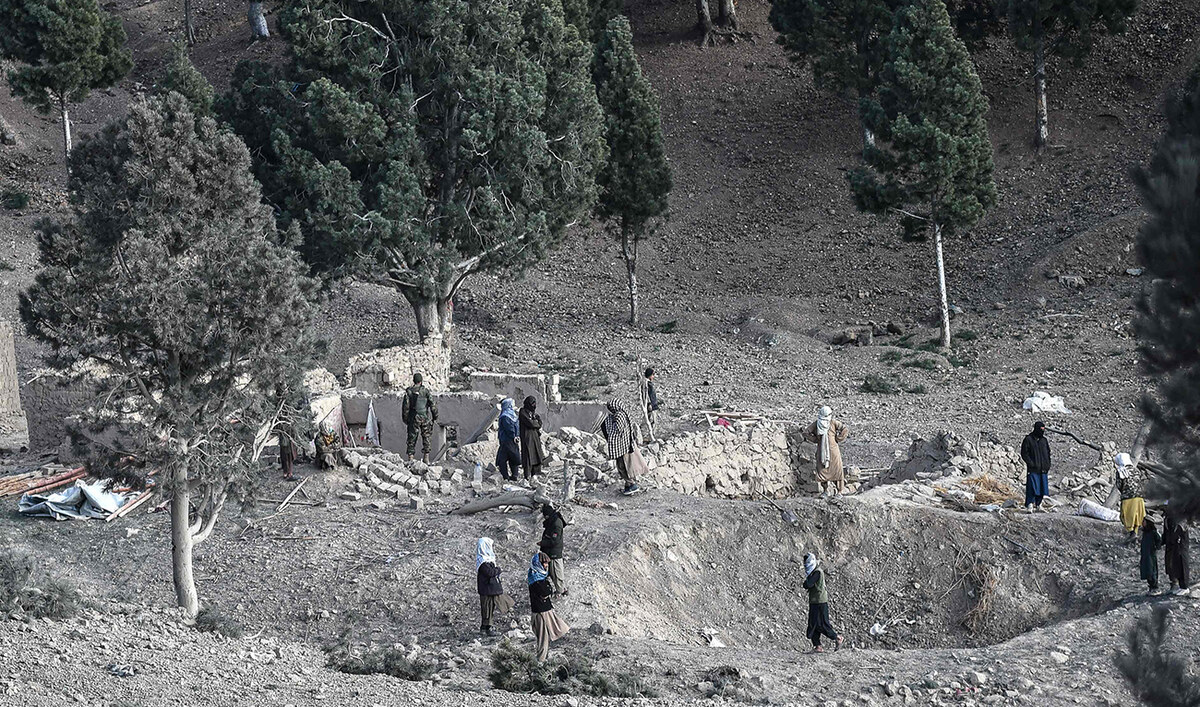
While Pakistan has not officially confirmed the airstrikes, with both the foreign office and the military’s media wing declining to comment, Prime Minister Shehbaz Sharif said the TTP cross-border attacks constituted a “red line” for his government, asking Afghan authorities to take action against militants using their soil.
The reported airstrikes coincided with a visit to Kabul by Mohammad Sadiq, Pakistan’s special representative for Afghanistan, to discuss trade and regional ties.
“It seems that Pakistan wants to continue to talk to the Taliban while also flexing its military muscle, just as the Taliban did once they engaged in talks with the US,” Husain Haqqani, a former Pakistani ambassador, told Arab News.
He maintained that Pakistan’s military leadership believed its past support for the Afghan Taliban, when the US-led international forces were still operating in Kabul, would shield it from violent attacks, adding these armed groups did not consider any Muslim country “exempt from imposition of their extreme ideology.”
However, Sami Yousufzai, an Afghan political analyst, highlighted the delicate nature of Pakistan-Afghanistan ties, saying such strikes were viewed as a direct affront by Kabul.
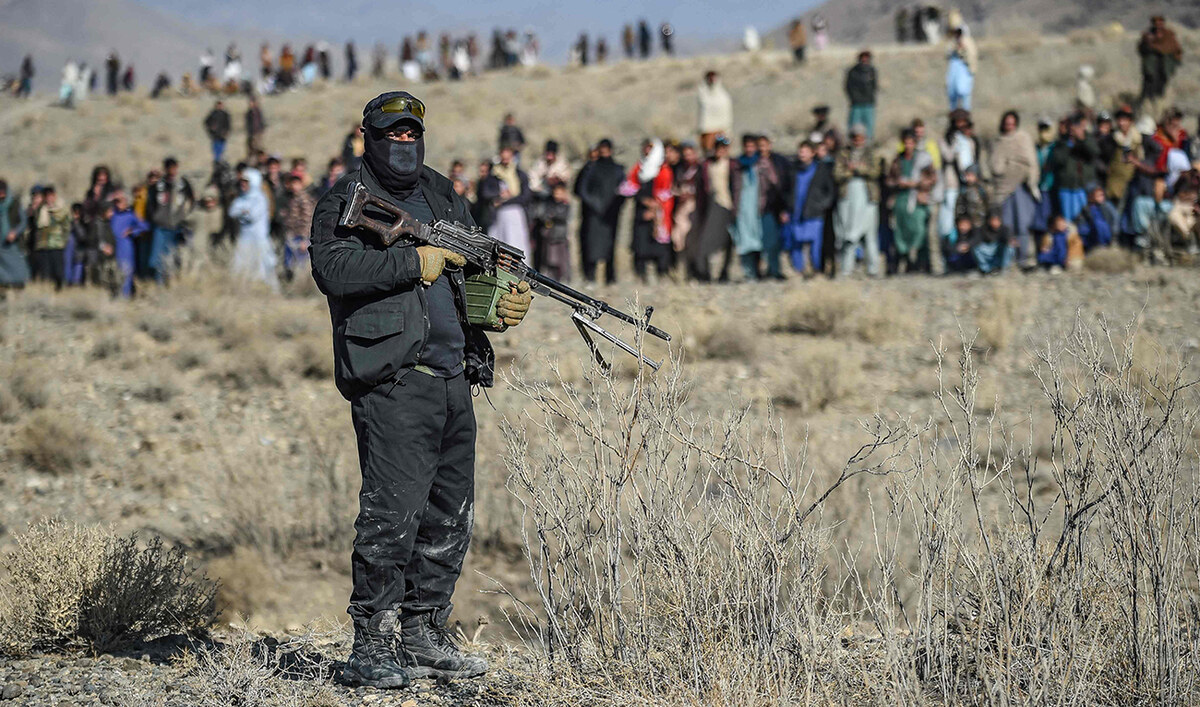
“Afghanistan is particularly sensitive to invasions or attacks within its borders,” he told Arab News, acknowledging that the airstrikes resulted from growing pressure on Pakistan due to the surge in TTP attacks.
However, he maintained Pakistan had made errors of judgment relating to the timings of the attack, as one of its senior diplomats, Ambassador Sadiq, was in Afghanistan, and the number of civilian casualties.
Yousufzai informed that Afghan authorities had recently taken confidence-building measures at Pakistan’s request by relocating 200 TTP families from border areas to central Afghanistan, adding that the move had been undermined by the airstrikes.
“Afghanistan has little to lose, but as a more stable nation, Pakistan should avoid irresponsible actions,” he continued. “Such attacks will not eliminate the TTP. Instead, it will likely increase their support.”
He maintained the real issue was the TTP presence in Pakistan, adding that its fighters were even residing in districts like Bannu and Dera Ismail Khan, which do not share border with Afghanistan, though they have experienced several deadly attacks.
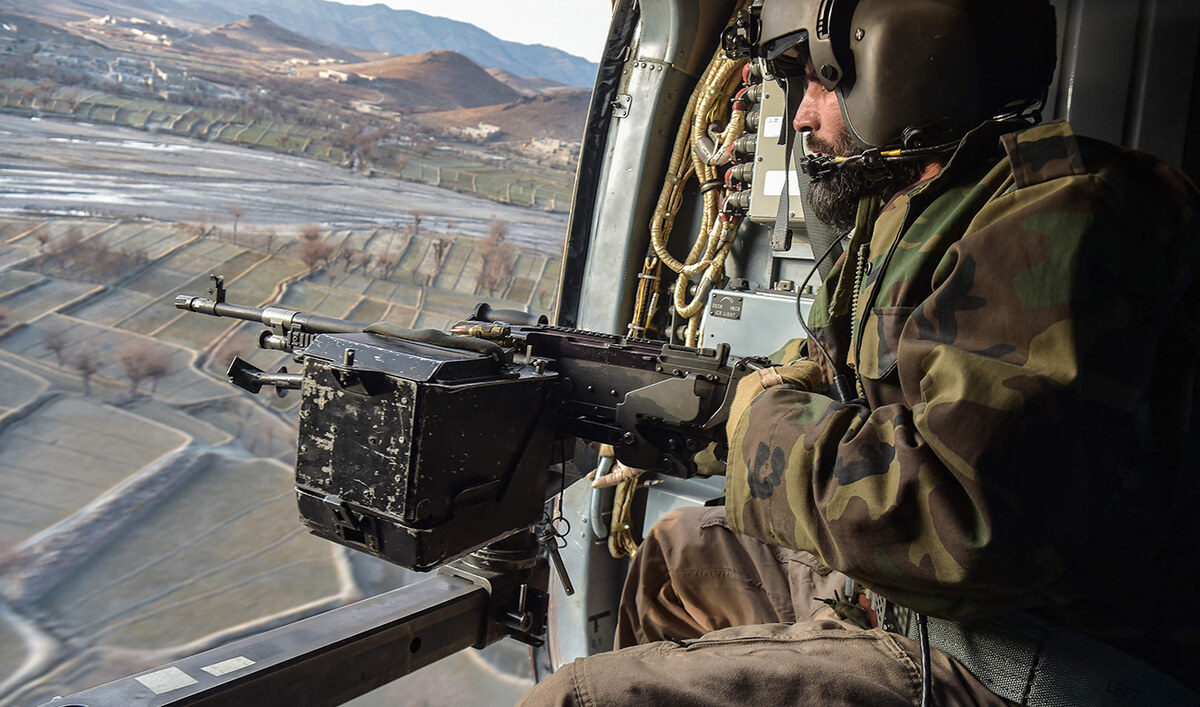
Mehmood Jan Babar, a Peshawar-based journalist specializing in Afghan and tribal affairs, argued the strikes did not derail diplomacy, as evidenced by continued meetings between Sadiq and Afghan officials, including Taliban Foreign Minister Amir Khan Muttaqi.
Asked about Afghan warning of consequences to Pakistan, he said: “Such speeches and statements are often for public consumption.”
Syed Khalid Muhammad, a security expert in Islamabad, dismissed the claims of civilian casualties, arguing that militants deliberately use civilian populations as shields.
“The key thing to understand about the Pakistani airstrikes on the TTP is that the militants have hidden themselves among the civilian population, much like every terror group globally, which serves a greater purpose for them,” he added. “It allows them to manufacture an alternative narrative to gain sympathy.”
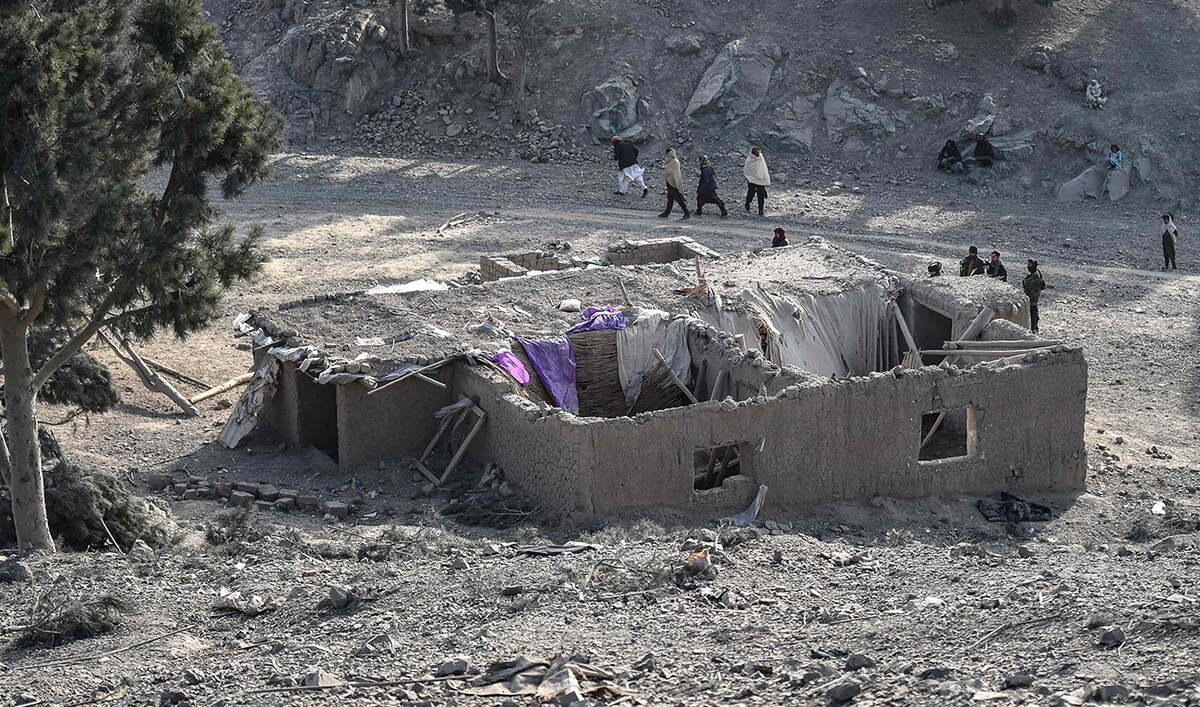
Meanwhile, Pakistani military’s spokesperson Lt. Gen. Ahmed Sharif Chaudhry said his country had repeatedly pointed out to the Afghan government on state level that the TTP and other militants had been launching cross-border attacks in Pakistan in a news conference earlier today.
“Pakistan will leave no stone unturned in dismantling terrorist networks and safeguarding its citizens against terrorism,” he told the media without confirming the airstrikes.


